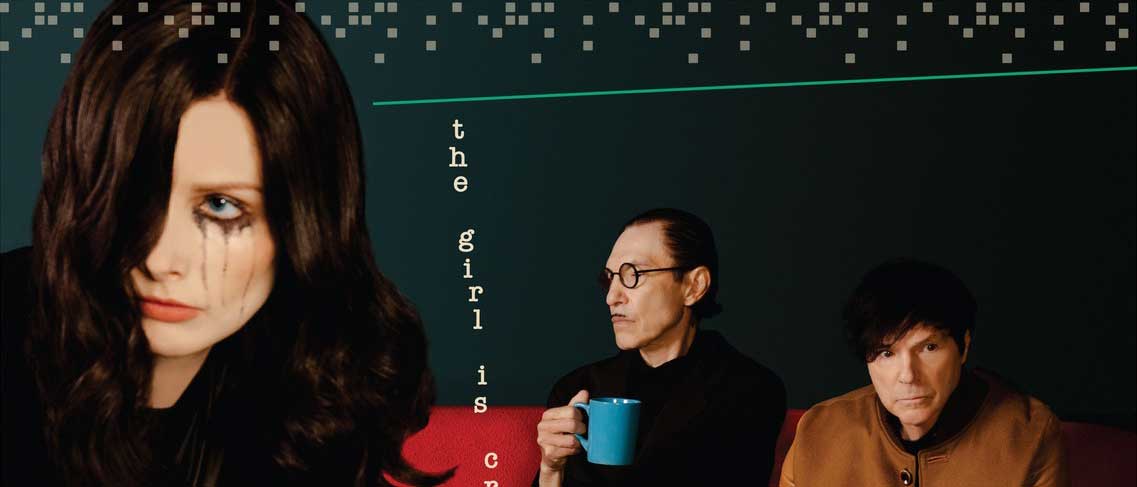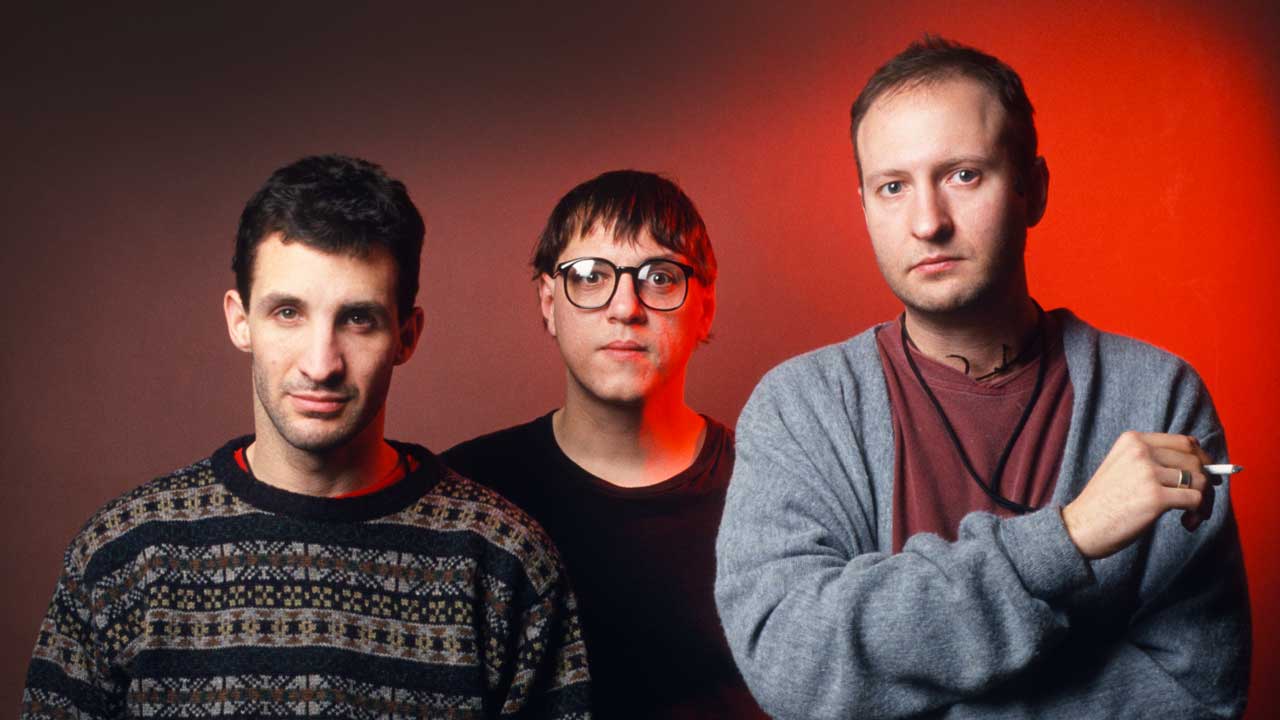You can trust Louder
For a duo with a combined age topping 150, Sparks have pulled off a dazzling sustained career renaissance in recent years. After a run of Top 10 albums, Edgar Wright’s all-star bio-documentary The Sparks Brothers (2021), Leo Carax’s prizewinning collaborative musical Annette (2021) and more, the veteran LA avant-glam brothers Ron and Russell Mael have become their own greatest creations, a deliciously surreal living artwork. To quote Todd Rundgren, who produced their 1971 debut and worked with them again recently: “There is some comfort in the fact that something this weird can survive that long.”
With appealing symmetry, the Maels have returned to Island Records almost 50 years since the label launched their mainstream pop career. As determinedly quirky as its title, The Girl is Crying In Her Latte is a very strong collection of vintage Sparks moods, plus a few new left-field twists.
Arch, ironic, culturally rich lyrics underpin heavily mannered staccato vocals and punchy mini-opera melodies, from sarcastic new-wave blammers like Nothing Is As Good As They Say It Is to the waspish Morrissey-on-Broadway power ballad When You Leave.
Fans of the duo’s classic 1970s baroque-pop phase will appreciate orchestral bangers like We Go Dancing, a droll totalitarian disco stomper that re-imagines a North Korean military parade as a giant rave, and Take Me For A Ride, a galloping Bonnie and Clyde fantasy chase drama couched in lush, Hollywood-sized string arrangements. Blurring the line between sunny and sinister, both have some of the sugar-coated oddness of Danny Elfman’s scores for filmmaker Tim Burton.
Long before Talking Heads, before Yello, before Pet Shop Boys, Sparks invented post-modern meta-pop almost singlehandedly. But, crucially, behind their theatrical artifice and ironic distance lies a tender, yearning, nostalgia-infused romanticism. The luminous, Kraftwerkian electro reverie Escalator is one of their most unashamedly beautiful songs to date, the bittersweet relationship postmortem Gee, That Was Fun strikes a wistfully Beatles-ish tone, and the rousingly emotional soft-rock anthem It Doesn’t Have to Be That Way almost sounds like a defiant manifesto for the Maels as pop’s eternal outsider artists. ‘They always said you must stay inside the lines/Staying easily defined or you’re wasting all your time/It doesn’t have to be that way.’ Indeed not.
Forever fresh, witty and stubbornly original, Sparks are living proof that weirdness never gets old.
Sign up below to get the latest from Classic Rock, plus exclusive special offers, direct to your inbox!
Stephen Dalton has been writing about all things rock for more than 30 years, starting in the late Eighties at the New Musical Express (RIP) when it was still an annoyingly pompous analogue weekly paper printed on dead trees and sold in actual physical shops. For the last decade or so he has been a regular contributor to Classic Rock magazine. He has also written about music and film for Uncut, Vox, Prog, The Quietus, Electronic Sound, Rolling Stone, The Times, The London Evening Standard, Wallpaper, The Film Verdict, Sight and Sound, The Hollywood Reporter and others, including some even more disreputable publications.


